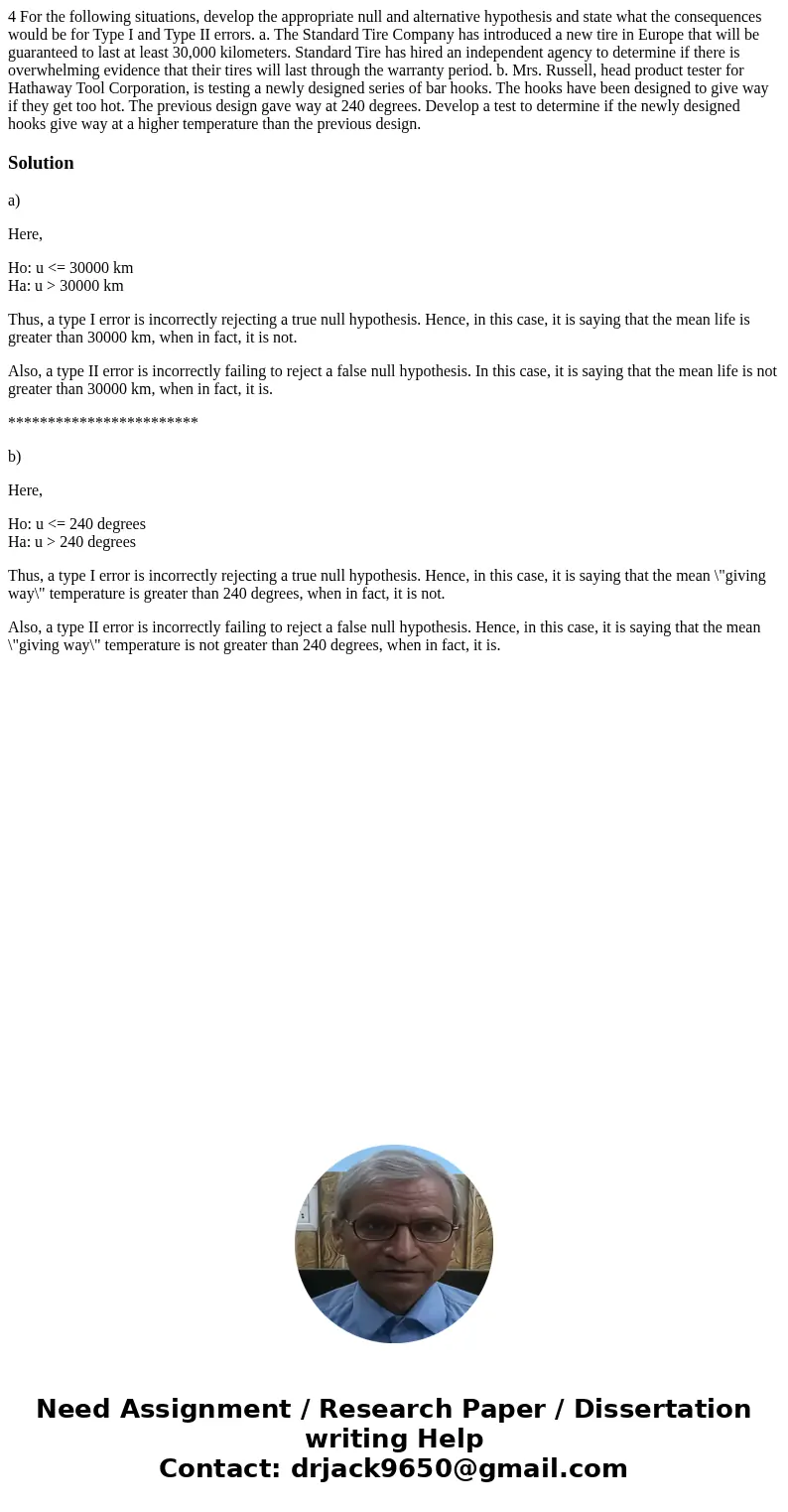4 For the following situations develop the appropriate null
Solution
a)
Here,
Ho: u <= 30000 km
Ha: u > 30000 km
Thus, a type I error is incorrectly rejecting a true null hypothesis. Hence, in this case, it is saying that the mean life is greater than 30000 km, when in fact, it is not.
Also, a type II error is incorrectly failing to reject a false null hypothesis. In this case, it is saying that the mean life is not greater than 30000 km, when in fact, it is.
************************
b)
Here,
Ho: u <= 240 degrees
Ha: u > 240 degrees
Thus, a type I error is incorrectly rejecting a true null hypothesis. Hence, in this case, it is saying that the mean \"giving way\" temperature is greater than 240 degrees, when in fact, it is not.
Also, a type II error is incorrectly failing to reject a false null hypothesis. Hence, in this case, it is saying that the mean \"giving way\" temperature is not greater than 240 degrees, when in fact, it is.

 Homework Sourse
Homework Sourse